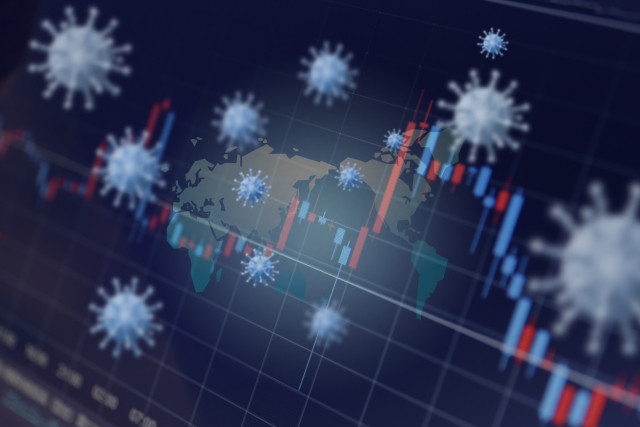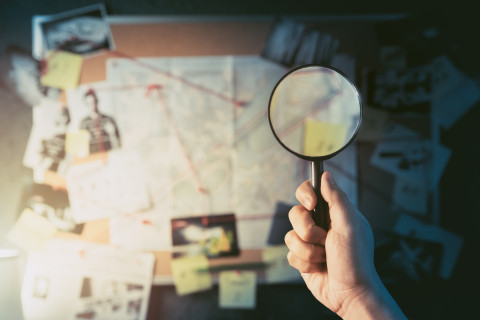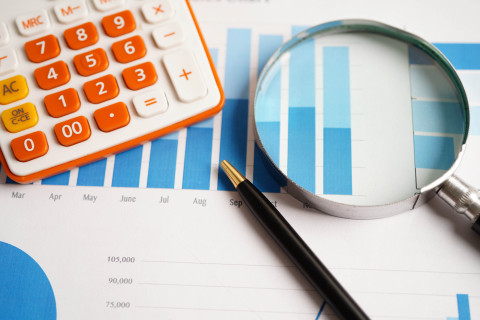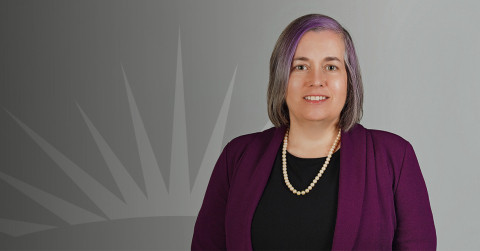
Comparing COVID-19 to Other Disasters
COVID-19 has been one of those rare events that has gotten the entire nation and the entire world to stop and pay attention to it. There have been a few of these events that have occurred in my lifetime, including the September 11 terrorist attacks, the hurricane season of 2004, Hurricane Katrina and the stock market crash of 2008.
For me, however, the COVID-19 pandemic is the first crisis I have experienced as a part of the workforce. I sat down with Principal and Consulting Actuary Rob Walling to better understand the impact those earlier, notable and older disasters had on insurance, as well as the potential parallels with COVID-19. Rob has experience working with a wide variety of insurance coverages through all of these periods of time and provides a keen perspective to the effects any of these catastrophes have on the insurance industry.
Q. As a young professional, this is the first major global event or crisis for which I have been a part of the work force. Can you shed some light on how the COVID-19 pandemic compares to the September 11 terrorist attacks, the four major hurricanes of 2004, Hurricane Katrina and the market crash of 2008?
A. The first major event I experienced in the industry was actually Hurricane Andrew which was a few years earlier than the ones you mentioned. That was in 1992 and it just beat up Miami, Florida. Natural disasters, hurricanes, even the Northridge Earthquake and the California wildfires are--I don’t want to say localized--but very specific. They’ll affect a line or two of coverage. They affect a few states. Katrina’s effect in Louisiana and Mississippi – which I can’t believe was 15 years ago – was very localized and specific. The impacts it had on the insurance industry were also localized and specific. State Farm had a billion dollar claim just on their Mississippi homeowners, for example. In Florida with Hurricane Andrew, a lot of companies took billion dollar hits and it put a couple of very big insurance companies out of business.
With COVID-19, almost every coverage is affected. It doesn’t matter if it’s medical professional liability with nursing homes, the trucking industry, taxi cab business or even property insurance with all the business interruption claims. Is it covered or isn’t it covered? For workers’ compensation, for example, will essential workers be covered when they get COVID-19? There is no line kept out of this. It’s a multibillion dollar question. September 11, setting aside the human tragedy, brought the reinsurance market to its knees and caused a massive market correction that lasted several years. We are seeing a similar situation with COVID-19, perhaps but maybe even more so. This has caught the reinsurance market at a difficult time as it’s been reckoning with large losses in trucking and property from windstorms, tornadoes and wildfires. The reinsurance market was already making adjustments, now that there are billions of dollars of BI claims, the adjustments will be even more substantial. So, the reinsurance market correction is substantial, but there is no part of the world, no line of business that is immune from COVID-19.
Q. What do you think were the biggest impacts of those prior events on society and the insurance market? In your opinion, how will this pandemic compare to those in the long run?
A. In the United States, the only other thing in my lifetime that compares and on the same scale was September 11. Ask anyone my age and they will tell you precisely where they were on September 11. I think people will remember 2020 and what happened during COVID-19 with the same clarity.
I think about the number of our coworkers whose weddings were delayed, whose children are homeschooling, who had really substantial life changes as a result of this. In impact, I think it’s comparable to the Berlin Wall coming down or walking on the moon. We haven’t seen an issue this global since World War II. Because it has been that long, I think we have been very fortunate. I have a very different appreciation for my grandparents who went through World War I, the Great Depression, the Spanish Influenza and World War II. They went through a string of these [crises] that are unlike anything that happened in my lifetime.
Q. I think what you said about September 11 and remembering where you were raises an interesting point. I think the Wednesday through Friday where the NBA stopped, then Tom Hanks announced he tested positive, then all the March Madness tournaments stopped, will be similar, and people are going to remember those three days.
A. The craziness of it. For me, it was very specific. I was in the middle of providing testimony for the Maryland Legislature and I had a big business trip planned to Los Angeles and Vancouver. Within a period of 24 hours, it was gone. I landed from my testimony and was literally packing up for a flight the next morning when things got canceled. I think about how I may have been stuck in L.A. for a while.
Q. Following Hurricane Katrina, insurance companies attempted to remove liabilities of claims under the pretense there were exclusions in the policy language due to water damage. Do you expect business interruption coverage or workers’ compensation to experience the same?
A. It is interesting you draw that comparison. I think it is a slightly different situation. After Katrina, a lot of property damages in Mississippi turned into claims against a few specific providers. The claims assessment was that damage was done not by the hurricane but by the following flood, which were specifically excluded from policies, initially causing denied claims. Eventually a lawsuit was brought disputing claim denials. Ultimately, the providers in question made the business decision to pay the claims as an extra contractual liability, almost like punitive damages. They decided the public relations black eye they would have suffered from denying a billion dollars’ worth of claims would have caused so much reputational damage to the company that it was worth that billion dollars to pay the claims.
I think we will see that with business interruption. I believe there will be some attempts to try and handle at least some of the claims as extra-contractual. There is a lawsuit right now with a provider on an “All Perils BI” coverage. It says “all perils” and does not have the pandemic exclusion. What an underwriter thought was a slick broadening of coverage is going to end up hitting certain companies really hard. We saw it with the Wimbledon Tournament. Wimbledon had bought an all perils business interruption coverage for decades and there are no exclusions on it. Lloyd’s who had been writing that coverage cut a big check this year.
Q. Following the events and results of September 11, the Terrorism Risk Insurance Act was enacted. Do you foresee Congress enacting something similar for pandemic insurance?
A. Probably. I do a lot of work with government insurance programs and I think they do a lot of their best work when dealing with risks that are too big of an elephant for the insurance industry to digest. So something like flood programs, or multi-peril crop or terrorism is simply a risk that is not insurance in the traditional sense. I think you are going to see something that looks like the private insurance industry and government partnership. Candidly, I think both flood, crop and terrorism show how innovation still has room to grow. I work on captives that take a piece of risk from the National Flood, Multi-Peril Crop and Terrorism Programs.



